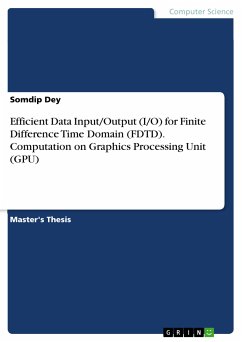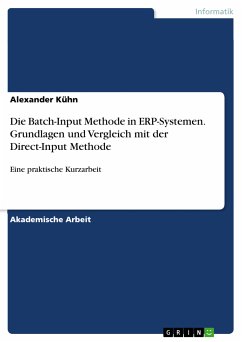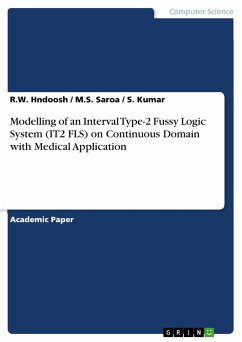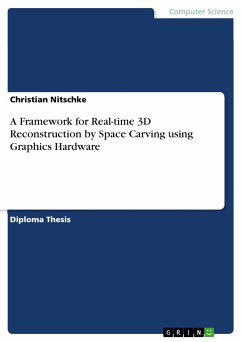Master's Thesis from the year 2014 in the subject Computer Science - Applied, grade: First, University of Manchester (School of Computer Science), course: Advanced Computer Science: Computer Systems Engineering, language: English, abstract: Due to recent advancement in technology, one of the popular ways of achieving performance with respect to execution time of programs is by utilizing massive parallelism power of GPU-based accelerator computing along with CPU computing. In GPU- based accelerator computing, the data intensive or computationally intensive part is computed on the GPU whereas the simple yet complex instructions are computed on the CPU in order to achieve massive speedup in execution time of the computer program executed on the computer system. In physics, especially in electromagnetism, Finite-Difference Time-Domain (FDTD) is a popular numerical analysis method, which is used to solve the set of Maxwells partial differential equations to unify and relate electric field with magnetic field. Since FDTD method is computationally intensive and has high level of parallelism in the computational implementation, for this reason for past few years researchers are trying to compute the computationally intensive part of FDTD methods on the GPU instead of CPU. Although computing parallelized parts of FDTD algorithms on the GPU achieve very good performance, but fail to gain very good speedup in execution time because of the very high latency between the CPU and GPU. Calculation results at each FDTD time-step is supposed to be produced and saved on the hard disk of the system. This can be called as data output of the FDTD methods, and the overlapping of data output and computation of the field values at next time step cannot be performed simultaneously. Because of this and latency gap between the CPU and GPU, there is a bottleneck in the performance of the data output of the GPU. This problem can be regarded as the inefficient performance of data input/output (I/O) of FDTD methods on GPU. Hence, this project focuses on this aforementioned problem and addresses to find solutions to improve the efficiency of the data I/O of FDTD computation on GPGPU (General Purpose Graphics Processing Unit).
Dieser Download kann aus rechtlichen Gründen nur mit Rechnungsadresse in A, B, BG, CY, CZ, D, DK, EW, E, FIN, F, GR, HR, H, IRL, I, LT, L, LR, M, NL, PL, P, R, S, SLO, SK ausgeliefert werden.









